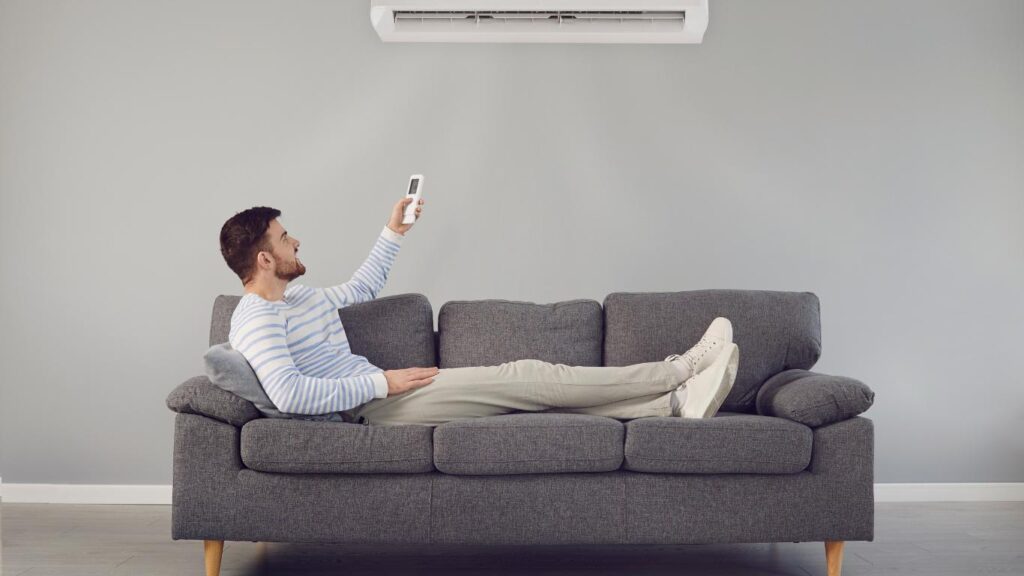Choosing the Right Air Conditioning System for Fresno’s Climate: Factors to Consider

Fresno, California, nestled in the heart of the San Joaquin Valley, embodies vibrant diversity and rich agricultural heritage. Known as the gateway to Yosemite National Park, it boasts cultural treasures like the Fresno Art Museum and lively events such as the Big Fresno Fair. With a bustling downtown and scenic surroundings, Fresno offers a dynamic blend of urban amenities and natural beauty.
When it comes to selecting an air conditioning system for your home, it’s crucial to understand the importance of choosing the right one. The perfect air conditioning system can make a significant difference in your comfort level, energy efficiency, and overall satisfaction. With so many options available in the market, it can be overwhelming to make a decision. However, by considering a few key factors, you can ensure that you select the perfect air conditioning system for your climate.
Factors to Consider When Choosing an Air Conditioning System
Before diving into the different types of air conditioning systems, it’s essential to consider a few factors that will help you make an informed decision. Firstly, you need to assess the size of the space you want to cool. A larger area will require a more powerful air conditioning system, while a smaller space may only need a compact unit. Additionally, you should consider the insulation of your home. A well-insulated house will retain cool air better, which means you may not need a high-capacity air conditioning system.
Another important factor to consider is your budget. Air conditioning systems come in various price ranges, so it’s crucial to determine how much you are willing to spend. Additionally, you should consider the energy efficiency of the system. Opting for an energy-efficient model will not only help you save on electricity bills but also reduce your carbon footprint. Lastly, think about any specific features you may need, such as programmable thermostats, remote controls, or air purifiers. Evaluating these factors will help you narrow down your options and make a more informed decision.
Different Types of Air Conditioning Systems
Now that you have considered the essential factors, let’s explore the different types of air conditioning systems available. The most common types include window units, split systems, central air conditioning, evaporative coolers, and portable air conditioners. Window units are self-contained units that are installed in a window or a small opening in the wall. They are typically cost-effective and easy to install, making them a popular choice for smaller spaces.
Split systems consist of two main components: an indoor unit and an outdoor unit. They are a bit more complex to install compared to window units but offer more flexibility in terms of cooling multiple rooms. Central air conditioning systems, on the other hand, are designed to cool an entire house. They consist of a central unit that is connected to a series of ducts throughout the house. This type of system provides consistent cooling and is ideal for larger homes.
Evaporative coolers, also known as swamp coolers, work by blowing air over water-soaked pads, resulting in a cooler indoor temperature. They are more suitable for dry climates where humidity is low. Lastly, portable air conditioners are versatile units that can be moved from room to room. They require minimal installation and are an excellent option for renters or those who don’t want a permanent cooling solution. By understanding the different types of air conditioning systems, you can choose the one that best suits your needs.
Matching the Air Conditioning System to Your Climate
One crucial aspect to consider when selecting an air conditioning system is your climate. Different climates have different cooling requirements, and it’s essential to choose a system that can effectively handle the demands of your specific climate. For instance, if you live in a hot and humid climate, a central air conditioning system or a split system with a dehumidifier may be the best option. These systems not only cool the air but also remove excess moisture, making your indoor environment more comfortable.
On the other hand, if you reside in a dry climate, an evaporative cooler may be more suitable. This type of system adds moisture to the air while cooling it, providing relief in hot and dry conditions. Additionally, if you experience extreme temperatures, such as in desert climates or regions with harsh winters, you may want to consider a system with a heat pump. This will allow you to both cool and heat your home efficiently throughout the year.
By matching the air conditioning system to your climate, you can ensure optimal performance and energy efficiency. It’s important to consider the specific needs and challenges of your climate to select the system that will keep you comfortable year-round.
Energy Efficiency and Cost Considerations
Another crucial factor to consider when selecting an air conditioning system is energy efficiency and cost. Investing in an energy-efficient system not only reduces your environmental impact but also saves you money in the long run. Look for systems with high Seasonal Energy Efficiency Ratio (SEER) ratings, as they indicate better energy efficiency. Additionally, consider the type of refrigerant used in the system. Environmentally friendly refrigerants, such as R-410A, are more energy-efficient and have a lower impact on the ozone layer.
While energy efficiency is important, it’s also essential to consider the initial cost and potential long-term savings. Some air conditioning systems may have a higher upfront cost but offer significant energy savings over time, which can offset the initial investment. Consider the lifecycle costs of the system, including maintenance, repairs, and energy consumption, to get a clearer picture of the overall cost. It’s also a good idea to inquire about any available rebates or incentives for energy-efficient systems offered by your local government or utility company.
Maintenance and Installation Requirements
Before finalizing your decision, it’s crucial to consider the maintenance and installation requirements of the air conditioning system. Different systems have varying maintenance needs, and it’s important to understand what is required to keep the system running smoothly. Regular maintenance, such as cleaning or replacing filters, checking ducts for leaks, and ensuring proper airflow, is essential to maintain the efficiency and longevity of the system.
Additionally, consider the installation requirements of the system. Some systems, such as central air conditioning, may require professional installation. Others, like window units or portable air conditioners, can often be installed by homeowners themselves. It’s important to assess your own skills and comfort level with DIY installations before making a decision. If you opt for professional installation, make sure to research and hire a reputable HVAC contractor with experience in installing the specific type of system you choose.
Common Mistakes to Avoid When Selecting an Air Conditioning System
When selecting an air conditioning system, there are a few common mistakes that you should avoid. Firstly, don’t make the mistake of buying a system that is too big or too small for your space. An oversized system will cool the room too quickly, leading to frequent on-off cycles and inefficient cooling. On the other hand, an undersized system will struggle to cool the space, resulting in higher energy consumption and reduced comfort.
Another mistake to avoid is neglecting to consider the noise level of the system. Some air conditioning units can be quite noisy, which can be disruptive, especially in bedrooms or living areas. Look for systems with low noise ratings or consider additional features, such as noise-reducing insulation or variable speed compressors, to minimize noise. Finally, don’t overlook the importance of proper installation and maintenance. Improper installation or lack of regular maintenance can lead to decreased efficiency, costly repairs, and reduced lifespan of the system.
Evaluating Your Budget and Financing Options
Once you have considered all the factors and narrowed down your options, it’s time to evaluate your budget and financing options. Determine how much you are willing to spend on the air conditioning system, taking into account the initial cost, installation expenses, and potential long-term savings. If the upfront cost is a concern, explore financing options such as loans or payment plans offered by manufacturers or HVAC contractors.
Additionally, consider the potential energy savings and rebates offered for energy-efficient systems. These savings can help offset the initial investment and make a more expensive system more affordable in the long run. Remember to factor in the lifecycle costs, including maintenance and repairs, when evaluating your budget. By carefully assessing your financial situation and exploring financing options, you can find an air conditioning system that fits your budget without compromising on quality and performance.
Seeking Professional Advice and Recommendations
While researching and considering all the factors is important, seeking professional advice and recommendations can provide valuable insights and guidance. HVAC professionals have the knowledge and experience to assess your specific needs, evaluate your space, and recommend the most suitable air conditioning system for your climate. They can also provide information on the latest technologies, energy-efficient options, and installation requirements.
Consulting with a professional will ensure that you make an informed decision and avoid any costly mistakes. They can also help you navigate through the various options, understand the technical specifications, and answer any questions or concerns you may have. By working with a trusted HVAC professional, you can have peace of mind knowing that you have selected the perfect air conditioning system for your climate.
Conclusion
In conclusion, selecting the perfect air conditioning system for your climate is a crucial decision that requires careful consideration of various factors. By understanding the importance of choosing the right system, evaluating factors such as size, insulation, budget, and energy efficiency, and considering the specific requirements of your climate, you can make an informed decision. Avoid common mistakes, assess your budget and financing options, and seek professional advice to ensure that you find an air conditioning system that provides optimal comfort, energy efficiency, and satisfaction. With the right system in place, you can enjoy a cool and comfortable indoor environment, regardless of the climate outside.
FAQs
The ideal size depends on factors like square footage, insulation, and local climate. Consulting with an HVAC professional can help determine the right size to efficiently cool your space in Fresno's climate.
Look for units with high SEER (Seasonal Energy Efficiency Ratio) ratings. Energy-efficient models can help reduce utility bills and minimize environmental impact in Fresno's hot summers.
Humidity control is crucial in Fresno's climate, where dry summers can exacerbate discomfort. Opt for an AC system with integrated humidity control features to maintain indoor comfort levels effectively.
Yes, given Fresno's air quality challenges, consider air conditioning systems with advanced filtration or purification capabilities. HEPA filters or UV-C light systems can help remove airborne pollutants and allergens, enhancing indoor air quality.
Regular maintenance is essential for ensuring the efficiency and longevity of your AC system in Fresno's climate. Schedule routine inspections, cleanings, and filter replacements to keep your unit running smoothly, especially during peak cooling seasons.

